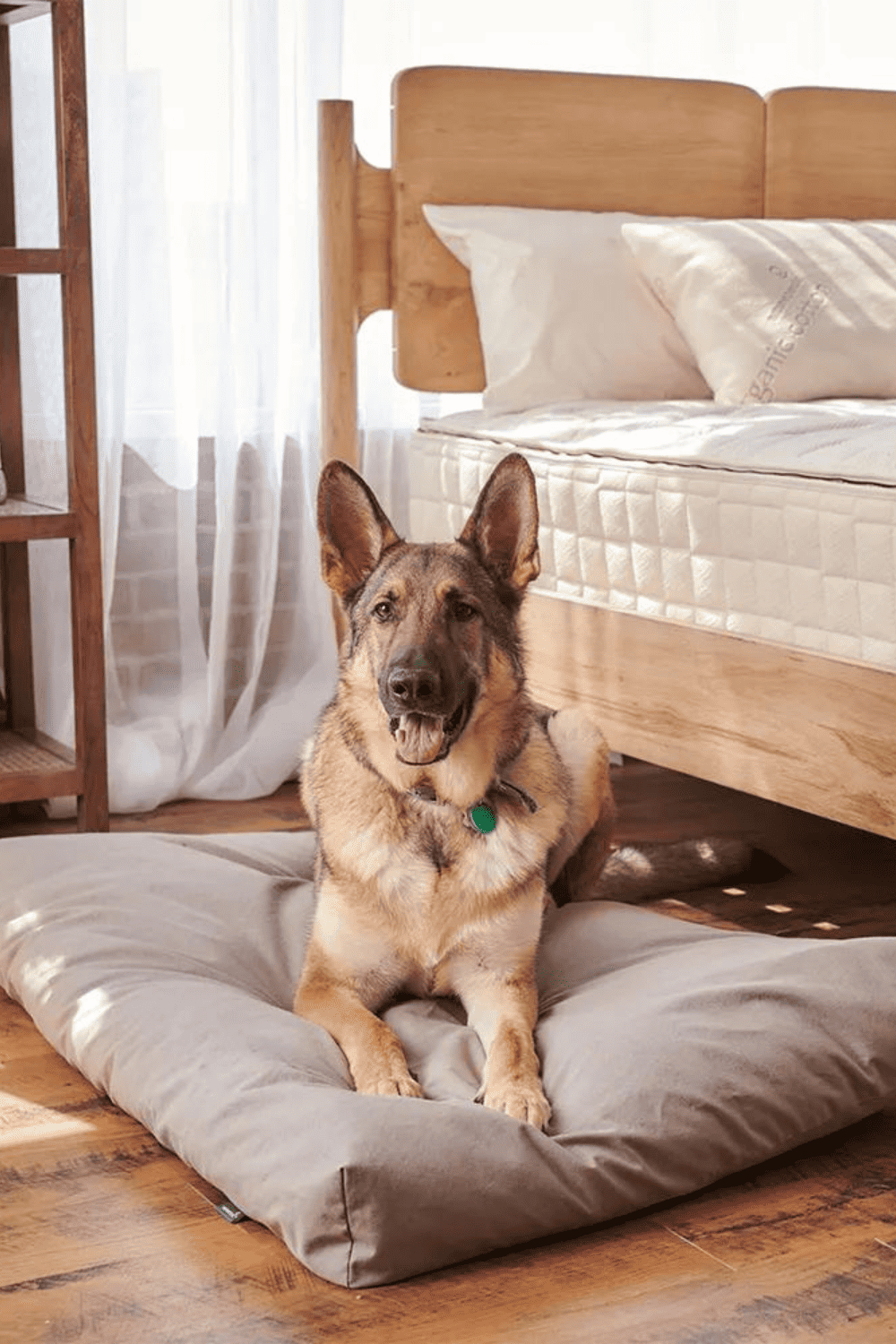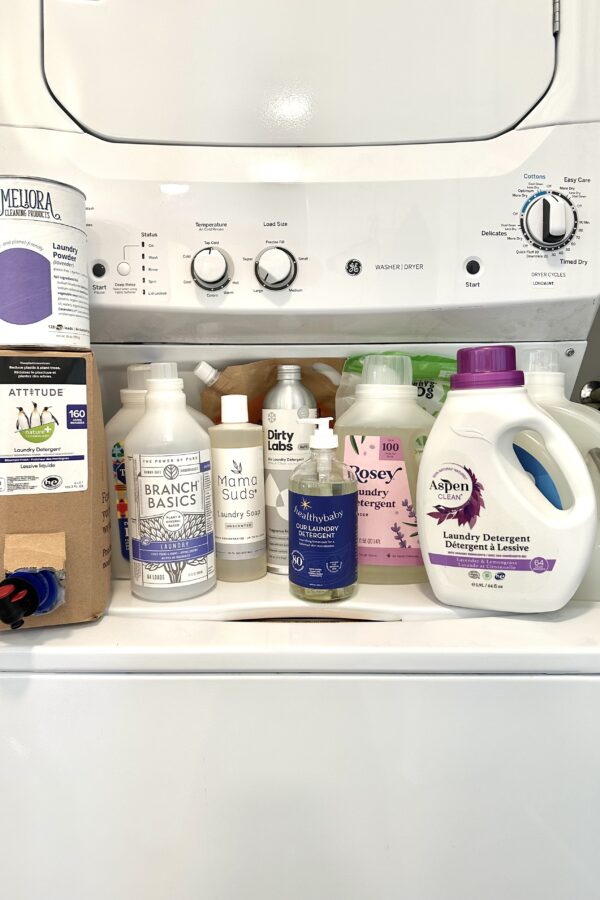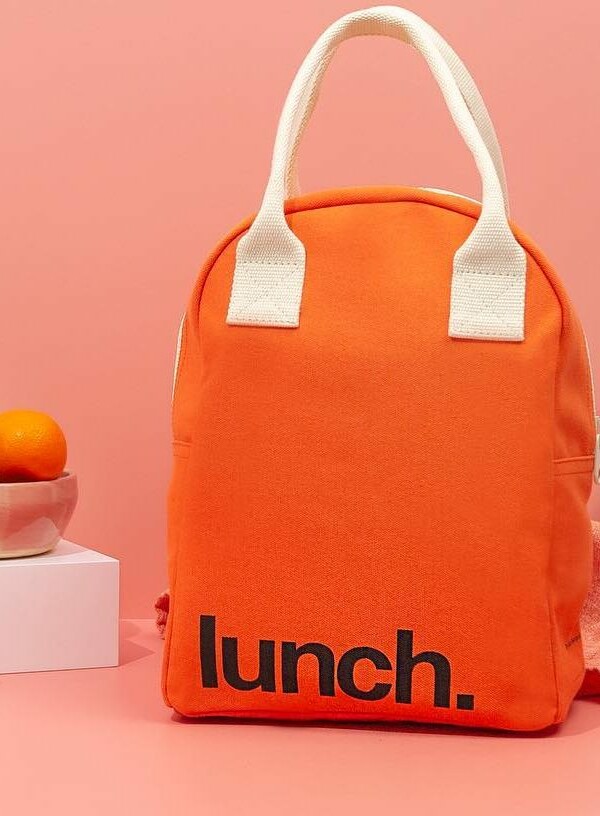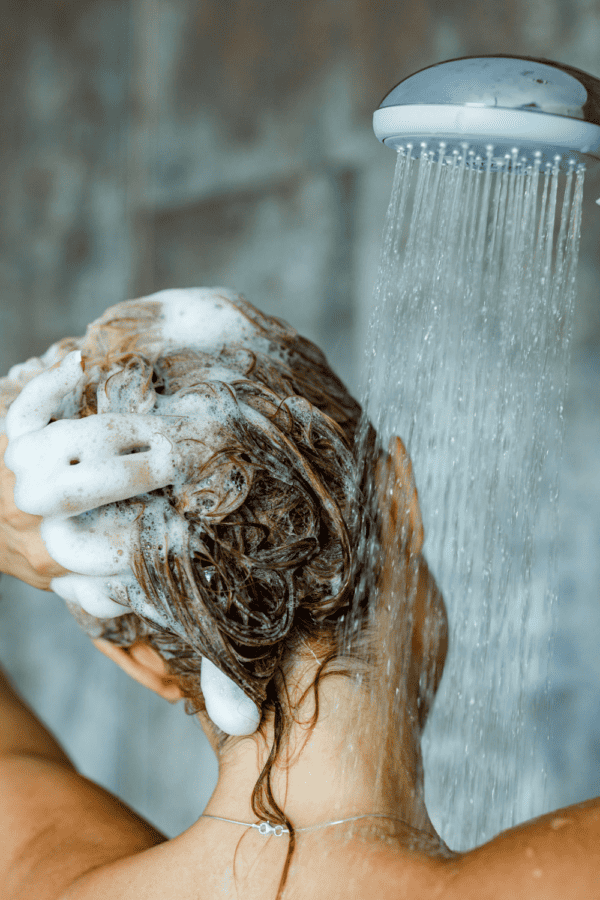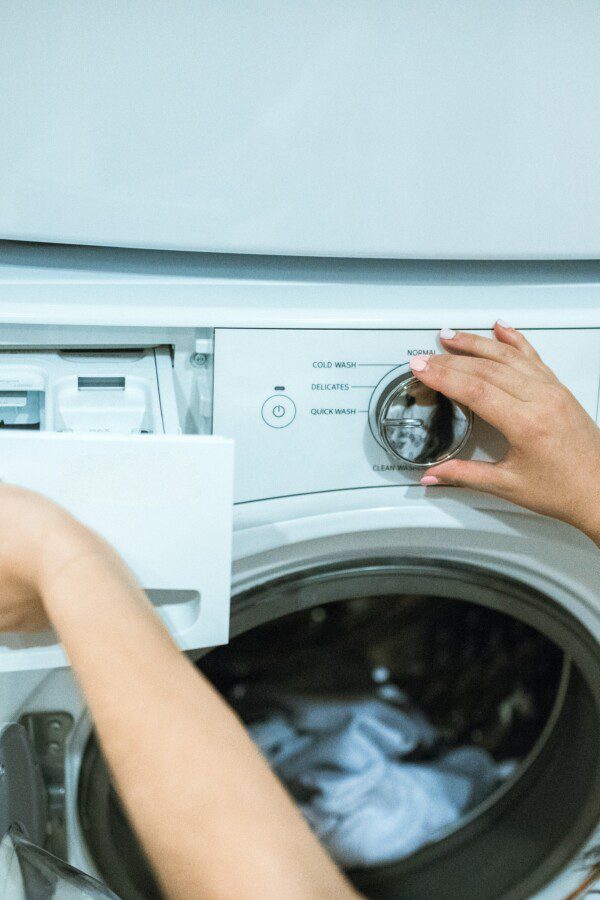Created by Ellen Degeneres, the super-soft, plush, and cruelty-free/vegan UnHide blanket has been causing quite a stir over the past couple of years. And it’s no wonder, considering how much time most of us have spent trapped inside and stressed out during the pandemic!
Tons of people received an UnHide blanket in a FabFitFun box back in 2021, and the brand has gotten some help from TikTok influencers like Josh Richards as well, who joined the company in late 2020 as an investor and Co-Creative Director.
So, we’ve been wondering: does the UnHide blanket really live up to the hype? In this article, we’re going to give you our honest assessment, including the pros and cons.
Let’s do it.
Table of Contents
- Are UnHide Blankets Natural, Organic, and/or Non-Toxic?
- Are Faux Fur Products Really Eco-Friendly? (Or Is It a Case of Greenwashing?)
- Buuutttt…. It Really Is Super Soft
- …But It Doesn’t Always Keep Its Softness After Washing…
- Does the UnHide Blanket Shed?
- Where Are UnHide Blankets Made?
- How Much Does UnHide Blanket Weigh?
- Blankets That Are Better Than UnHide
- Conclusion
This post may contain affiliate links, which means we may earn a small commission if you choose to make a purchase. Cover image credit: UnHide
Are UnHide Blankets Natural, Organic, and/or Non-Toxic?
What are UnHide blankets made of? This is the first question we asked because it’s what The Filtery is all about: transparent, non-toxic, natural, and/or organic materials.
Unfortunately, the answer here is no: UnHide’s blankets are not made from non-toxic, natural, and/or organic materials.
On their website, they state that their “blankets are made of the highest quality faux.” If you dig into their FAQs, you’ll find out that the blankets are made from “100% Faux Chinchilla Polyester.”
Polyester is made out of petroleum, a.k.a. fossil fuels (we’ll get to that more in a minute). Polyester is plastic, and plastic is generally not great for human, animal, or environmental health (though some types of plastic are definitely worse than others).
So, what’s the deal with polyester?
Is Polyester Toxic?
Many polyester products contain a chemical called antimony trioxide, which is a known carcinogen. Not only that, but they’re often treated with formaldehyde to prevent shrinking. While formaldehyde is safe at its naturally occurring levels, it becomes carcinogenic at moderate to high levels (which is what we often find in bedding and home goods).
Polyester can also contain BPA, which is toxic to human health as well. Heating polyester (putting it in the dryer) can potentially release these types of chemicals even more.
To put it plainly, there is unfortunately no way to really know whether or not these toxic chemicals are in UnHide’s blankets (and at what levels).
Of course, the reality is that polyester is really difficult to 100% avoid since it’s used in so many textile products. This is one reason why some conscious consumers will choose to avoid it when it’s relatively easy to do so… Blankets and bedding is one of those areas where it’s pretty easy to find natural and organic options.
Are Faux Fur Products Really Eco-Friendly? (Or Is It a Case of Greenwashing?)
UnHide’s “super soft” faux fur blankets are targeted toward animal lovers because they’re made from fake, cruelty-free, vegan fur. At first glance, that sounds great, right!? We never want animals to be harmed in any way in the making of any of the products we use.
However, the problem here is: there are actually much more eco-friendly (and therefore animal-friendly) materials that are also completely and naturally cruelty-free. Cotton, organic cotton, hemp, linen, and TENCEL are all completely vegan and cruelty-free and are actually much better for the environment in the long run compared to the polyester that UnHide uses.
Polyester might be vegan and cruelty-free, but it’s not plant-based. Polyester is a petroleum product; it’s a byproduct of the fossil fuel industry. As the fossil fuel industry is doing the most to fuel climate change—which negatively effects animals and their eco-systems—one could even argue that in the long run, polyester is actually not cruelty-free. Even though animals are not harmed in the making of the blankets, countless wild animals are indirectly harmed by the industry that produces polyester.
That brings us to the microplastic issue, too. When synthetic fabrics shed over time (either through normal wear or in the washing machine), they shed tiny plastic pieces, which are released into our waterways and larger ecosystems. These microplastics are incredibly difficult to clean up and are now completely taking over our oceans and causing marine animals to suffer.
Home
The 15 Best Organic & Non-Toxic Dog Beds for 2024
Discover safe, organic, and non-toxic dog beds! Shop our 15 recommendations for your fluffy sidekick and skip the harmful chemicals found in many dog beds.
Getting Better: UnHide’s Recycled and Pre-Loved Collections
UnHide’s Marshmallow blanket is made from 90% recycled materials. That’s a good thing because it increases the circularity of plastics, keeping some of them out of the landfills and ecosystems. It also requires much fewer virgin petroleum products to be manufactured.
UnHide also introduced a PreLoved section of their website, which allows customers to buy and sell their UnHide blankets at cheaper prices. This serves a similar purpose that the recycled Marshmallow blanket does by increasing the circularity of the products, which is better for the environment and the animals (including humans) who live in it.
However, this unfortunately doesn’t solve the problem of microplastic shedding or the potentially toxic chemicals that may exist in these blankets.
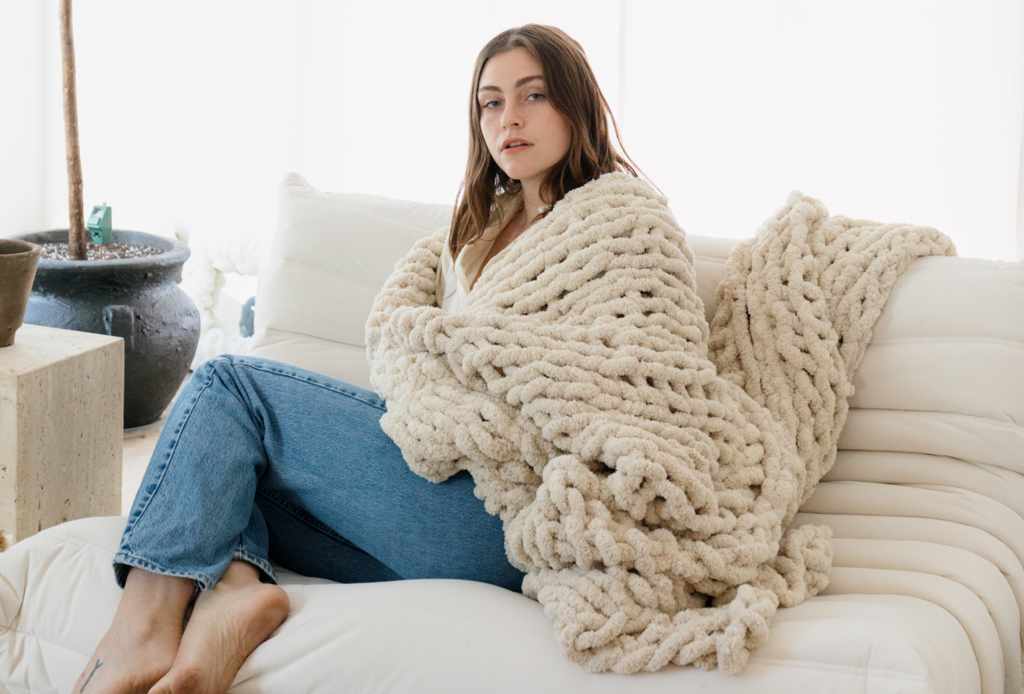
Buuutttt…. It Really Is Super Soft
Yes, the UnHide blanket truly is super soft. But is it really the “softest blanket ever”? It is slightly softer than the majority of similar “microfleece” blankets out there, but it’s not necessarily something to write home about (especially when you consider the price difference between UnHide and comparable fleece blankets).
But the tough truth about these super soft, plush, polyester blankets is that they are really soft, and you just can’t get that same level of fluffy softness with a natural material like organic cotton.
Ultimately, you just have to choose what’s most important to you!
…But It Doesn’t Always Keep Its Softness After Washing…
This is a problem we see in a lot of online reviews. And we’re not surprised because this is the case for almost all polyester fleece blankets: they lose a significant amount of softness after their first trip through the washing machine. UnHide addresses this issue in the FAQ section of their website:
“What should I do if my blanket is different after I washed it?
It’s really unlikely that the blankets are getting ruined as they did pass in-house and third-party testing for “tumble dry low” instructions (they were tested through production as well so all lots passed). Shedding is possible or even likely, but the blanket is just 100% polyester so it shouldn’t be getting ruined in the wash. If the blanket is dry cleaned or washed gently and tumble dry no-low heat, then the quality should be roughly the same. As with all synthetic fiber goods, some degradation does occur with general wear and tear.”
I’ll speak from my own experience. I was gifted an UnHide blanket from a friend and it did in fact lose a lot of its softness after it went through the washing machine (despite the fact that I followed the directions from the brand). Again, this is typical for this type of microfleece blanket.
Does the UnHide Blanket Shed?
Not only is this faux fur blanket likely to lose its softness over time, but there are also lots of reports from customers that it sheds a lot, too (as is also indicated in the company’s answer above). Especially considering that customers are spending up to $200 for one of these blankets, we’d like to see some more quality and durability from UnHide products.
Home
9+ Best Non-Toxic Bedding & Organic Bed Sheets in 2024
You spend a lot of time in bed! So to foster a healthy bedroom environment, consider choosing non-toxic bedding. Here are my favorite organic bedding brands in 2023!
Where Are UnHide Blankets Made?
This is another question we have (along with a lot of people on the internet). On the packaging, you can see that UnHide’s blankets are made in China. Now, “Made in China” does not always mean “made in a sweatshop” or “made cheaply.” Sometimes it does, and other times it most definitely does not. We need more info.
Unfortunately, UnHide provides no further information on where or how their products are made. We reached out to them and asked for more information on the factory(ies) and how they ensure safe working conditions and fair pay for the workers who make the blankets. Here was their response:
“Blankets are made in china. Yes, there are definitely great working conditions. I recently asked the warehouse about this and they told me “Factory is located at Suzhou City, Jiangsu Province of China. This area has higher level on economic development . Besides convenient traffic, transportation and well-equipped basic facilities, it also has very nice natural scenery because weather there is very nice throughout the whole year. A lot of workers prefer to working there” [sic]
Again, this is not very reassuring information at all. We’d prefer to see the actual name of the factory, third-party certifications (such as Fair Trade or SA-8000), and/or more information about whether their US-based team members visit the factory regularly.
How Much Does UnHide Blanket Weigh?
All of UnHide’s blankets are advertised as “Heavy-weight, extra soft, and designed to comfort you.” Here are the exact weights:
- The Lil’ Marsh XS is 2.1 lbs.
- The Lil’ Marsh Small is 2.7 lbs.
- The Lil’ Marsh Medium is 4.1 lbs.
- The Marshmallow is 9.5 lbs.
- The Cuddle Puddle is 9.1 lbs.
The Lil’ Marsh is half the weight of the Marshmallow, and the Cuddle Puddle is the largest blanket they carry.
For weighted blankets, most companies recommend getting a weight that is about 10 percent of your body wright (for adults). So it seems that UnHide blankets fall somewhere in between a standard blanket and a weighted blanket.
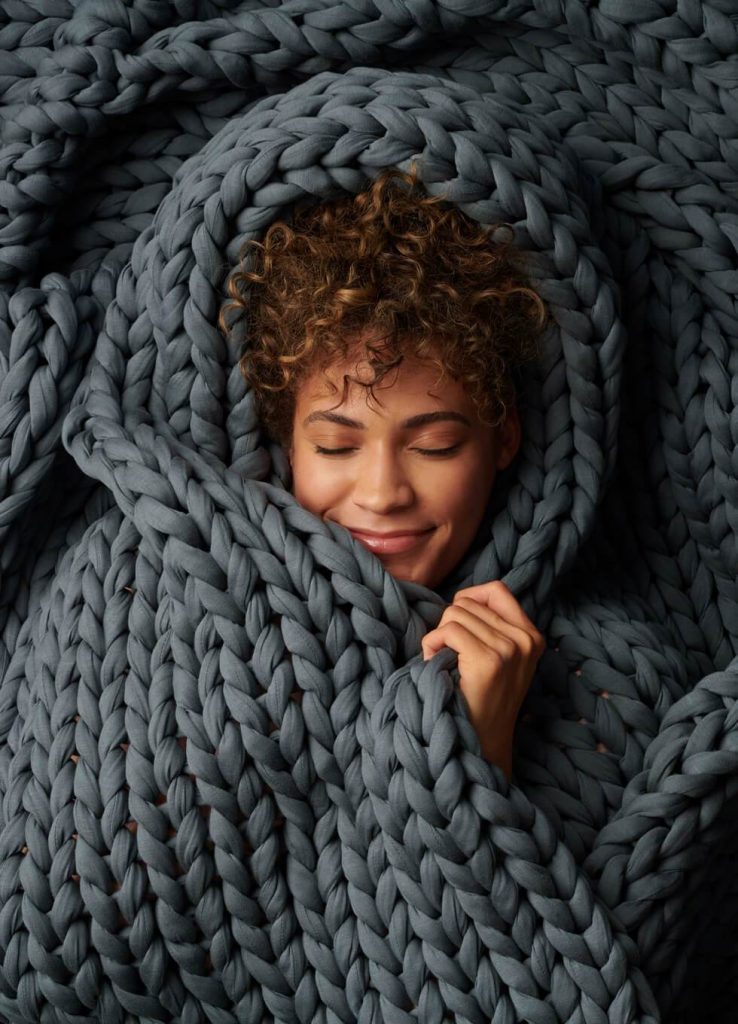
Blankets That Are Better Than UnHide
We picked out a few brands whose blankets are not only cruelty-free and vegan, but also plant-based and sustainable, more durable and long-lasting, manufactured in ethical factories, and still super soft.
Bearaby
We love Bearaby’s knitted weighted blankets. They carry several different variations when it comes to sizes, weights, and colors. You can choose between organic cotton or sustainable TENCEL — both of which are plant-based, vegan and cruelty-free, and much more eco-friendly than polyester.
Coyuchi
Coyuchi is a brand we trust to make sustainably, cruelty-free, and organic bedding. They have several different types of blankets, and most of them are made out of organic cotton or linen (both of which are completely vegan and plant-based). If you’re looking for a super soft blanket, check out their Cirrus Supersoft Organic Cotton Throw.
Under the Canopy
Under the Canopy carries a collection of blankets that come in a variety of different textures, weights, materials, and patterns. Most of them are made with organic cotton, but a few of them do contain wool, so vegans may want to avoid those ones.
Saatva
Saatva is a great option for a super-soft weighted blanket. It’s made out of luxurious organic cotton velvet, so it’s softer than most other weighted blankets. Again, it’s cruelty-free, vegan, and made from natural materials.
Rawganique
If you’re looking for a more lightweight blanket, check out Rawganique’s cotton fleece blanket, which is brushed on both sides for ultra-softness and warmth. It’s 100% organic, vegan, sweatshop-free, and chemical-free.
Conclusion
It’s great that UnHide’s faux fur blankets are vegan and cruelty-free, but they fall short in several ways. They’re not truly eco- or animal-friendly (even though they’re advertised as such), they’re not very durable (especially for how expensive they are), and we still know nothing about the working conditions of the people making them.
In the long run, buying a blanket made out of natural, sustainable, plant-based, and vegan materials such as organic cotton is a much better choice for our planet and all of the animals living on it.

